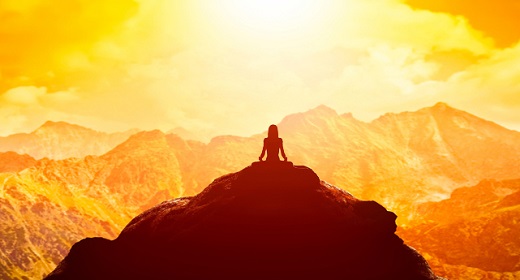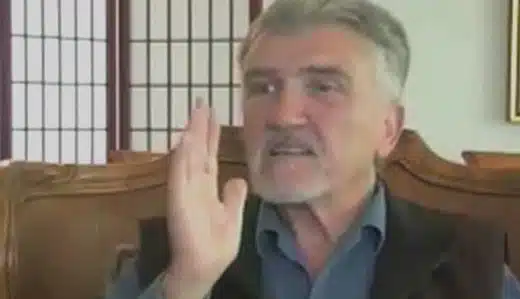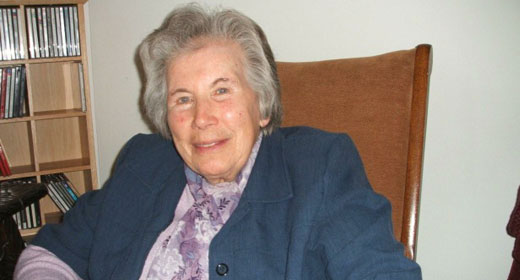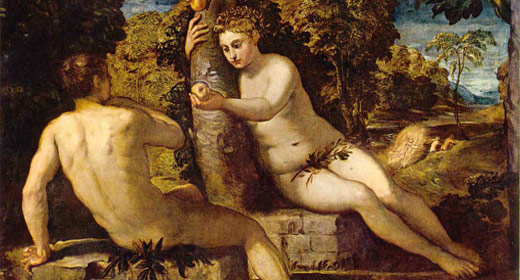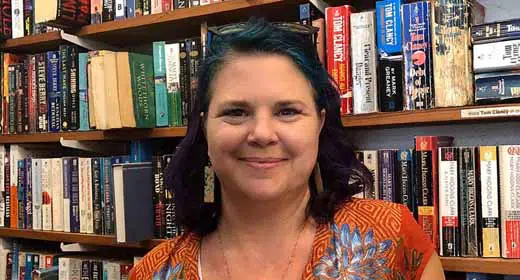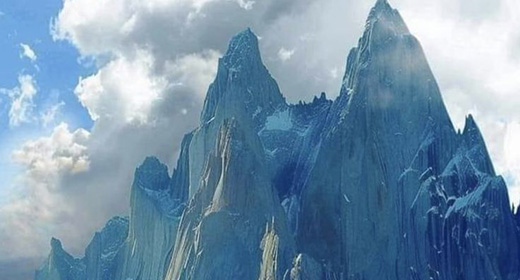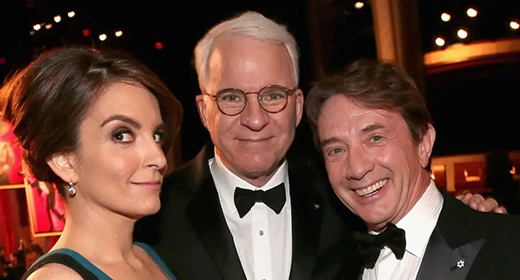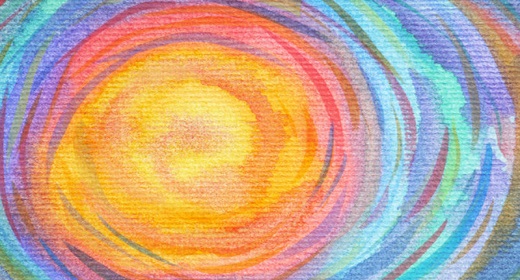Donna Quesada: I remember one part in the book that struck me, you spoke to your fear… Oh, so this is what fear feels like.
Something like that. So this is what you feel like… this is what it’s like. That was powerful.
Kiri Westby: Right, to sort of… having enough peace of mind to feel terror in the body, and feel what it does to the breath, and the body, and then
once you’re aware of it, then you actually can say, “oh, okay, I’m unconsciously terrorized… terrified, and I’m not holding my body correctly. I’m not breathing. I’m not doing that.” So, it was the recognition of terror that allowed me to kind of come back to my body, to a place of ground, and be able to weather the next three days or so, of interrogation, which was brutal.
DONNA: What other techniques did you call upon? I remember… because I love to chant… I love to sing. And so you also mentioned that there was a moment where you called on chanting on a mantra, you had mantras that you used?
KIRI: We did, yeah. That was sort of in the end, with all that fear. That’s what came to me, and my mind was just to continue repeating a mantra from my childhood, from Trungpa Rinpoche, which said:
Grant your blessings so that my mind may be one with the Dharma; grant your blessings so that the Dharma may progress along the path; grant your blessings so that the path may clarify confusion; grant your blessings so that confusion may dawn as wisdom.
And so, I just kept saying, whatever happens to my life, whatever happens next, let this be part of clarifying confusion for others… clarifying the confusion of violence and the occupation that this land is experiencing, and may this bring some wisdom there.
DONNA: Just run the mantra silently through your mind…
KIRI: Yeah. That just gave me the courage really, to continue breathing and facing what was going to arise next. You know, when you’re in handcuffs and you don’t know where you’re going and you don’t know how long you’re going to be there… You don’t know when you’re going to eat or sleep or go to the bathroom next. All you have is right now. You have just this breath. You have this moment.
And so, that’s what you come back to when you focus on that for… I found my strength there, my sense of courage. The breath from the mantras, from the chanting, and they couldn’t be touched by the interrogators and all the people because they were in my head and in my heart. So, I thought a lot of Tibetan prisoners. I thought a lot about Palden Gyatso. I talked about him in my book a lot, who was in his 90s, Tibetan political prisoner who had escaped, and he spoke in front of the United Nations in Geneva, and he even snuck out some of the torture devices that had been used against Tibetan political prisoners. And then shocked humanity when they said, “What did you fear most?” And he said, “What I feared most was losing my compassion for the Chinese, losing my compassion for my torturers.”
And I felt that very much in that moment. I felt like I needed to hold strongly to the seat of loving these people that were harming me, or else I was going to go to some kind of terrible place in my mind… of hatred and revenge fantasies, and all of that. I mean, to just hold them in love and know that fallbacks were harming me. They were, you know, I wasn’t going to become them. Right?
DONNA: That’s very powerful. I believe that he was featured in a documentary called The Yogis of Tibet. And I remember him. In the beginning of that documentary… before showing, you know, some of the yogis high in the mountains and their personal practices… they give a little backdrop of the political situation. And they interview him and I remember him saying that, that the greatest danger was the danger of losing his compassion. And I think that that is so different from anything that we’re used to here in the west, you know, because we’re used to being told that there’s justified anger, and don’t talk to me about forgiveness and all of these things. But, that’s very eastern. That no matter what, I’m the one who loses myself if I burn myself up in rage.
KIRI: Exactly. And that’s sort of the end. The final message in my book is… it comes down to a final moment as we’re finally being freed, and I’m at the border and I’m having… I have a very poignant interaction with a character that I call The Worst… was the one who really tortured me the most mentally and physically… the one who dragged me and held my head over that cliff… and she and I have a moment in which I actually realize that she is me. Like, we are two sides of the same person… that even though she’s chosen a very different path that I might think is the wrong path, but she’s doing the bravest thing she knows how to do to save herself, to save her family, to like… push forward and that we are exactly the same.
I just… all the anger or blame that I wished on her during the torture, all of that just like melts away and I can just see the pure essence of who she is and she is crying and I was crying and that was the pitch of my book… it’s about forgiveness, how I found it.
Hopefully, in sharing my example how others can find it… because I think you’re right, we don’t know what forgiveness looks like. We don’t talk about forgiveness enough and our worlds become more and more and more divisive. And I’m right, you’re wrong. And we don’t even know what it looks like to forgive somebody who’s harmed us.
DONNA: We just live with confusion. We think that if we forgive, that means that I’ve condoned the thing, but it’s not that. You’re able to see through the “otherness” and see that you both are driven by fear, even when you know that she’s got to do what she’s got to do, to survive. Even if it means acting as your enemy in this, this play, you know, this theater that we’re all stuck in.
KIRI: Its exactly as me being the other side of her. There was a very human moment in which we saw each other… our real selves and we dropped the pretense and all of it and, that was what it means to awaken. That was an awakening moment of looking at the reality of us sitting there in that moment. These two women. Our lives totally shaped by this.
DONNA: You know, I’m going to just take a moment and share one of the passages… Again, your book is so well written. I love to write also, and so that was the first thing that I delighted in, was the way that you told your story. Of course, the story, but… and the lessons, you know, and the seamless way that you weave the lessons through the writing. I love this passage:
KIRI: I learned then, in an eight year old way, that listening was a gift. The simple act of asking someone (or something) to tell their story, especially the hard parts, could make them feel better. It was a medicine. A powerful prescription, as effective as any I tried. It was then that I also began to feel healed by telling someone (or something) my hard parts. That same year, 1985, my mom had a late-stage miscarriage, taking with it all the excitement and plans I’d made for a younger sibling. I spent that evening by an old maple tree, weeping for the loss of a dream, for the ending of such a short story. The maple understood, having lost many saplings over the years, and still it grew, surviving on the promise of rebirth, the cycle of dying and becoming reincarnate, the way nature renews.
DONNA: And then you talk about your love affair with trees, which I also share. And you know, that passage is so beautiful. There’s just so many things I want to open up, that kind of struck me as too important to gloss over, in this passage… the importance of listening.
You know, so often we always feel that we’ve got to respond the appropriate way and say the appropriate thing, and we don’t trust that listening is enough. It’s such a powerful way of being present for someone, and creating a healing environment. And I love that you talked about that.
KIRI: Yeah, I think I learned from my relationship with trees. As a child, I spent a lot of time talking to trees and writing in journals. What the trees told me… I learned about the gift, the medicine of listening and I found myself more than once in a war zone, sitting with people who had suffered greatly and had lost loved ones. In realizing that I started feeling like I was there with nothing to offer, like… how do you help somebody with that much suffering? And the lesson from the trees would come back to me, actually… just giving someone undivided attention and letting them tell the story of what happened to them and then saying the simple words like, “I will hold that and you don’t have to hold it anymore” was enough. I could see a lightning, especially with young girls in refugee camps, or in places that had experienced intense sexual violence. The idea that it happened and nobody was pretending it didn’t, and that they recorded the event out loud to somebody from the outside, that said, “I will hold it…” I couldn’t do anything with it necessarily, but I could take it from them. I could take this burden.
DONNA: Say that one more time, I will hold that…
KIRI: “I will hold that and you can let it go now…” Hold the story when we both know what happened. It happened to you. And I will take it out of here with me and you can let it go. And so, I have all these stories that I would just take as sort of like a listening gift to say, “Now you’ve said it. You’ve said what happened to you. It was the worst thing.
And there’s a witness… there’s two and I will hold it for you and you can stop having to feel like you need to tell that story”… or, “carry it as a burden.”
So… and then many, many years later, I realized I needed to write this book because I was holding those stories. And so, many of them are in the book. I don’t know if you’ve gotten to the Congo yet or met Mary yet, but she was a big part of my story. And so, it was sort of like, I did hold those stories. I held them for a long time. And now I share them with you and with other people and those stories… what happened to them continues to have meaning and have life and to live elsewhere, and in other people in your life now.
And so, the power of storytelling is so profound. I think even our ability to confront the largest authoritarian regime in the world with China… All we had was stories. They decided to create a storyline and to tell stories to the different border guards and to get ourselves there through the power of storytelling, and then to tell the world a different story about the occupation of Tibet and what had been told to them. And all the weapon we used was storytelling.
And so, I’ve seen it time and again, whether you’re helping somebody to tell their story and seeing how it lightens their load or whether you’re telling your own story and lightening your own load, or using storytelling as a creative way to change people’s understanding of the world. I think we don’t have quite enough emphasis in our culture on storytelling and on being the bearers of other people’s stories and the power that it has to heal… the power it has to heal and to change.
So, lately, I have been saying that I fear losing my compassion for Donald Trump. I fear losing my compassion for Mitch McConnell and Ted Cruz and people that I might perceive as enemies. I don’t want to paint them into some kind of enemy. I want to continue to hold compassion… a difficult challenge. And one we’re all having to face in different places, yeah.
DONNA: In that passage, you also mentioned the idea of reincarnation. And this is also, I think, such a misunderstood notion in the west. Coming from your background in Tibetan Buddhism…. what does that mean to you? Reincarnation?
KIRI: Yeah, I mean, my understanding is that we have many lives. Our one soul or our one existence leads many lives. There’s a saying in Tibetan Buddhism, that every other person has in some lifetime, been your mother. And that’s where you find the seed of compassion for them. And it also means that, I guess, some people might think we have… we can live 100 years, like I was saying, or we might think our life expectancy is 60 years, like, my life expectancy is 6000 years. And so, this is just about one lifetime.
And we have just this one mom and this bag of bones and skin and what are we going to do with it? How are we going to leave some kind of indelible mark, so that we can continue to kind of like push towards our next lifetime and what we can do with that… And so, the idea of using this time to create goodness or merit for our next lifetimes has always been part of my belief or understanding, and then you go even further in the Mahayana tradition of Buddhism, and we have something called the bodhisattva vow, where we vow to actually wait on our own enlightenment until all other beings are enlightened. It’s kind of like at the buffet of enlightenment, we decide to go last.
And so, there is sense to that. We have lifetimes to help other people wake up, awaken, not to avoid suffering, but to be awake within the context of suffering, to be able to still hold a sort of space for joy and goodness, even in the most abject suffering. And so, we continue, those of us that have taken this vow… this bodhisattva vow… we continue to want to come back, time and time and time again, one lifetime after another, until we’ve helped all of humanity and all living beings, animals and people, wake up. So that’s the vow or the kind of big picture… that it might take 100,000 lifetimes.
Read and Watch Part IV Here: Awaken Interviews Kiri Westby Pt 4 – Waking Up To Something Bigger Than Ourselves
Read and Watch Part I Here: Awaken Interviews Kiri Westby Pt 1 – Awakening Is Refusing To Be Deluded Into a World of Just Light
Read and Watch Part II Here: Awaken Interviews Kiri Westby – Pt 2 – One World, One Dream, Free Tibet
Kiri Westby: From inside an interrogation session with the Chinese Secret Police, a young American activist recounts her path into global human rights work — exploring critical lessons on privilege and compassion in the context of war and extreme suffering.
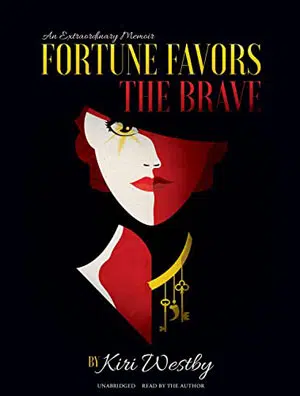 When I was arrested by the Chinese military for launching a historic Tibetan Freedom protest, I knew every trial and lesson had been worth it — even if it meant facing a life in prison.
When I was arrested by the Chinese military for launching a historic Tibetan Freedom protest, I knew every trial and lesson had been worth it — even if it meant facing a life in prison.
After a childhood infused with esoteric Buddhist teachings, I was forged into a global activist through years of witnessing and collaborating in the dissent of women on the front lines of war. From villages in Nepal, to refugee camps in The Democratic Republic of Congo, to the streets of Bogota, Colombia, my initiation into human rights activism was raw and transformative. The bravery of those women bolstered me in my darkest hours of interrogation and torture by the Chinese Police, and it guides me now to share my true story—no matter the repercussions. This is not a tale the Chinese government wants told.
During my years working in war zones, I often wondered if I’d have the courage to stand up to tyranny, to lay my life on the line to confront undeniable persecution.
In 2007 — on the slopes of Mt. Everest — I found out.
Take a literary journey with me as I reveal the bumpy road I took to becoming my bravest self — learning to leverage a life of advantage, find a place for my own joy, and cultivate the courage needed to play a distinct role in history.
Buy it Here: Fortune Favors the Brave


